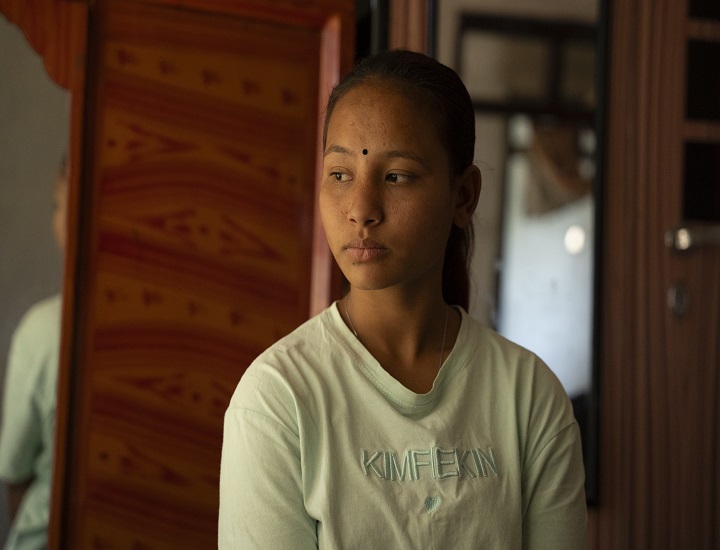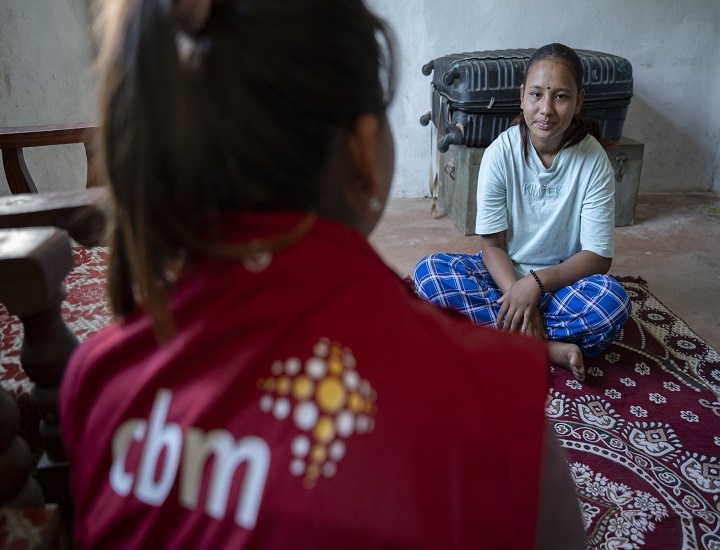Please help bring love and understanding to people like Dilmaya
Content Warning: The story here refers to suicide, which may be distressing for some readers. If you or someone you know is in need of support, you can call Lifeline Australia on 13 11 14.
Imagine having a health condition so misunderstood that people fear you.
This is why 18-year-old Dilmaya shares with a deep sadness…
“I don’t have any friends now.”
You may know CBM helps people who are blind or have a physical disability, but did you know that your support goes even further? You can also help support people living in poverty who endure stigmatisation and exclusion because of mental health conditions. People like Dilmaya.
Please will you help bring love and understanding to people like Dilmaya?
Why would Dilmaya’s neighbours turn their backs on her?
Dilmaya’s troubles began when she started having epileptic seizures at the age of just three.
Dilmaya’s mum Kausila held back tears as she recalled…
“She used to get attacks five or six times a day. There was a time when I couldn’t sleep because I was always worried about her. What if something happens to her? What if she gets another attack while she is asleep?
“Other people used to scold and hit her. One time, Dilmaya fell and broke her hand and collarbone. She never received love from anyone, except me.”
Dilmaya adds…
“My classmates feared that they may also have fits if they sit together with me in the classroom. That’s why I was forced to drop out while studying in grade nine.”
People in Dilmaya’s situation have nowhere to turn
Sadly, many mental health conditions like those Dilmaya experiences as a result of her epilepsy, are not just misunderstood… they are feared.
There are usually no services available to help people in Dilmaya’s situation. So, instead of receiving medical help in the depths of their suffering, people are often cast aside.
Will you donate to help people living with misunderstood conditions like those Dilmaya faces?
No one should ever have to experience despair like Dilmaya’s
Dilmaya misses school so much…
“I love to study. I want to go to school but I get panicked because I don’t have any friends and I am scared to go to school alone. If I had friends, I could go to school while talking to them.”
As a result of the heartbreak and anguish Dilmaya experienced, she developed severe depression. And sadly, by the age of 13, she had begun harming herself and having suicidal thoughts, all because of people’s misunderstanding.
But you can help bring love and understanding into the lives of people living in poverty with mental health conditions.
Thankfully, Dilmaya has turned a corner
Kausila tried everything she could to help her daughter. But sadly, it wasn’t enough…
“I was also fearful of her suicidal attempts. What would I do if she dies! These feelings came to my mind and I cried… I took her to every place possible. The only thing I want is regular treatment and medicine for my daughter.”
Imagine the enormous relief Kausila must have felt when her family connected with caring CBM Outreach Support worker, Durga.
Dilmaya now receives not only treatment for her epilepsy, but also regular home visits from Durga for her much-needed chance to speak with someone who truly understands and cares about what she is experiencing. The special bond they are developing has been life-saving for Dilmaya — and that is made possible because of you.
Help break down the misunderstandings that affect people living in poverty with mental health conditions
- You can help someone like Dilmaya access mental health counselling and medication.
- You can help provide people with mental health conditions with home visits from a caring Outreach Support worker like Durga.
- You can help create more understanding and loving neighbours for people like Dilmaya by supporting Anti-Stigma Awareness Campaigns and Self-Help Groups.
Please show people like Dilmaya they are not forgotten
Imagine what a difference it would make for Dilmaya to know she always has people she can turn to for compassion and support… instead of hiding away in fear of how she might be treated.
But please don’t delay. Because the longer people like Dilmaya go without help, the more isolated they become from their best chance of living a life where they are loved and understood by those around them.

